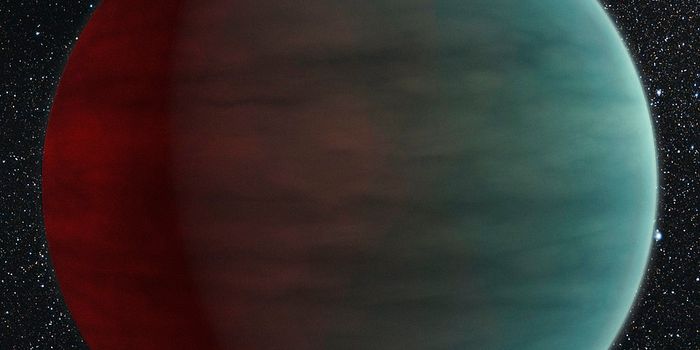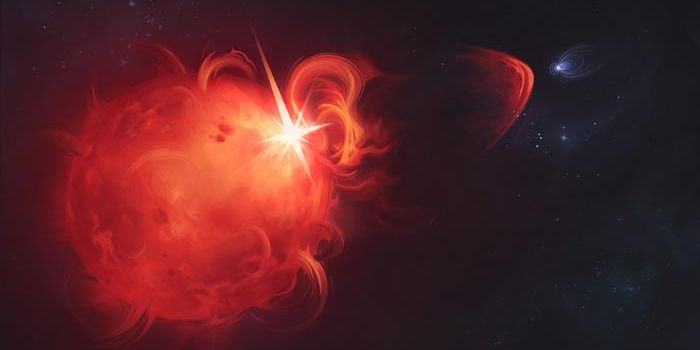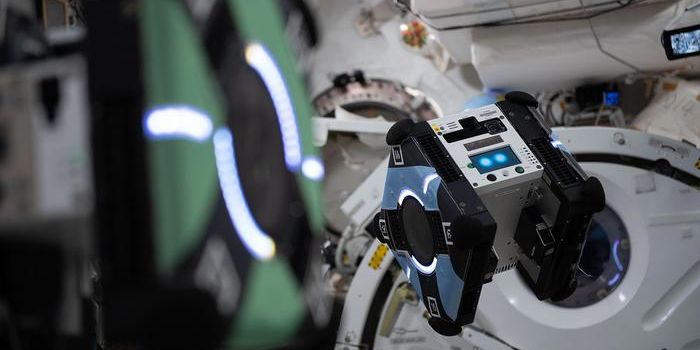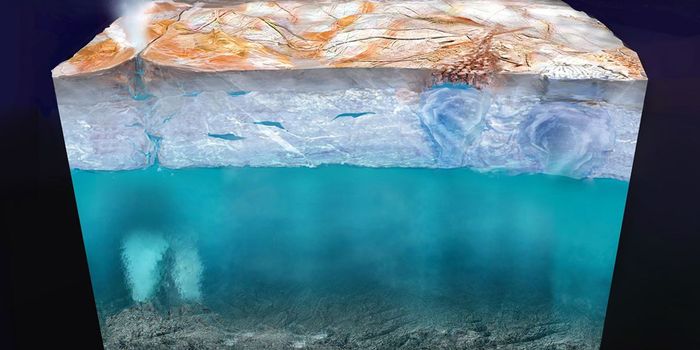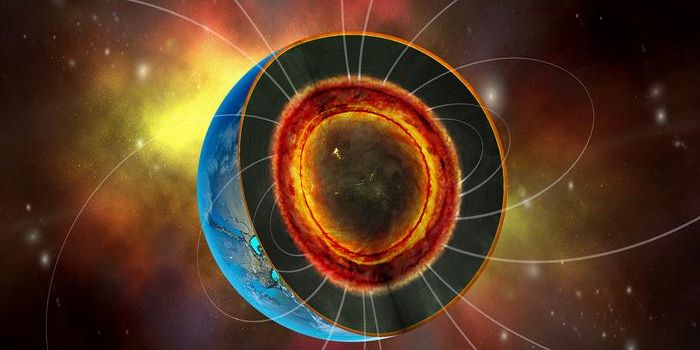NASA Psyche Spacecraft Successfully Launches Towards All-Metal Asteroid
NASA’s Psyche spacecraft successfully launched from NASA’s Kennedy Space Center at 10:19 am EDT (7:19 am PDT) this morning as it started its journey of approximately 2.2 billion miles (3.6 billion kilometers) to study the all-metal asteroid, 16 Psyche. The approximate $1.2 billion mission launched atop a SpaceX Falcon Heavy rocket, which is powered by three Falcon 9 rockets, with the two side boosters detaching and landing on separate landing pads approximately eight minutes later.
The center booster was tasked with propelling Psyche to its appropriate trajectory, and once its fuel was expended it fell back into the ocean. Just over an hour after launch, the Psyche spacecraft was successfully deployed from the rocket to officially begin its long journey to 16 Psyche.
Dr. Jim Bell, who is the Psyche Imaging Team Lead and a Professor in the School of Earth and Space Exploration at Arizona State University, was on-hand throughout the launch with NASA Public Affairs Officer, Megan Cruz, to discuss the historic mission, as he started the broadcast after being introduced, “Spectacular! Great! Good morning! Launch day! Launch day! Launch day! Super excited!”
Along with giving a history of 16 Psyche, to include the discovery and naming of both the asteroid and spacecraft, Dr. Bell immensely praised the “hundreds of thousands of people around the world and across the country” responsible for making this mission happen, and provided an overview of the science that could be accomplished, including “planetary cores, the Earth’s core, how planets form”, as 16 Psyche is hypothesized to be the remnant of a planetary core that didn’t full form. Dr. Bell also noted that no one knows “what the asteroid really looks like”, to include its actual size, so the Psyche spacecraft will “cautiously approach” the asteroid while entering a high orbit around it.
Selected in 2017, the Psyche mission is scheduled to arrive at 16 Psyche in early 2029 and will conduct a series to decreasing orbits around the Massachusetts-sized asteroid for approximately 450 days. During this time, Psyche will be collecting data on the asteroid’s elemental composition and characterization, gravity science, and topography as it inches closer to the asteroid until the spacecraft runs out of fuel.
(Credit: NASA/JPL-Caltech/Arizona State Univ./Space Systems Loral/Peter Rubin)
What will the Psyche mission teach us about planetary cores and planetary formation? Only time will tell, and this is why we science!
As always, keep doing science & keep looking up!


